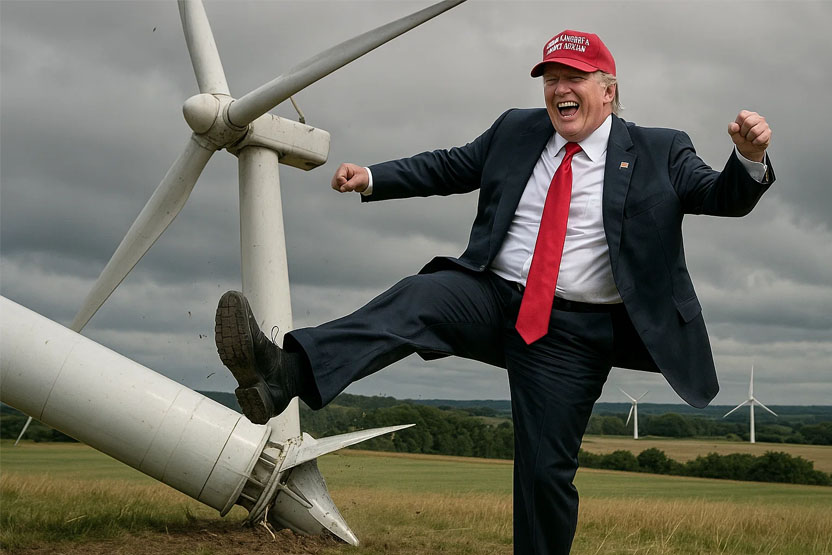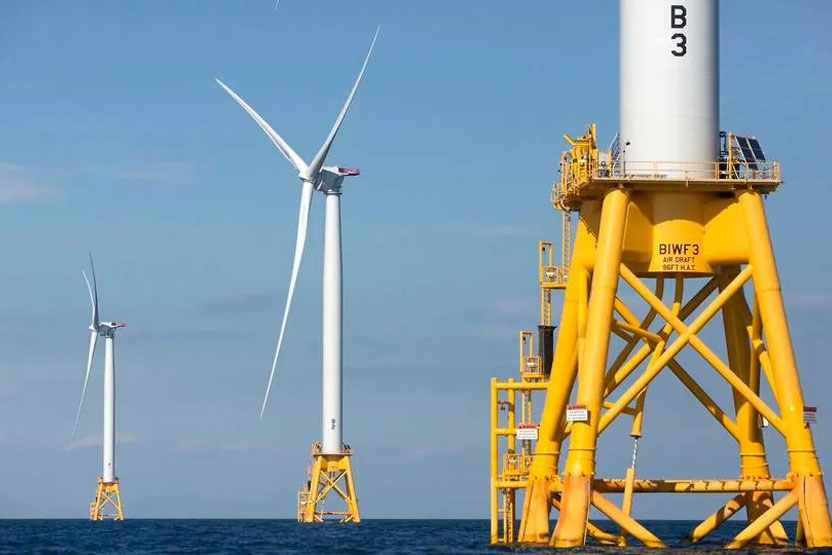
The administration of U.S. President Donald Trump has abandoned plans for new offshore wind energy projects in federal waters, marking yet another step back from supporting wind power in the United States amid a broader retreat from climate policies.
Interior Secretary David Bernhardt announced that the U.S. would end preferential treatment for wind and solar power installations, which he described as unreliable energy sources under foreign control.
The department is also considering rescinding high-potential onshore federal land areas from wind energy leasing, aiming to strike a balance between energy development and other uses like recreation and grazing.
The previous administration had designated more than 3.5 million acres—off the coasts of Texas, Louisiana, Maine, New York, California, and Oregon—as suitable for offshore wind development.
Last year, President Joe Biden introduced a five‑year timetable for leasing federal offshore areas for wind energy, but President Trump has consistently reversed his predecessor’s energy policies since taking office in January. He signed a series of executive orders boosting oil, gas, and coal production.
Trump has repeatedly expressed hostility toward renewable energy, particularly offshore wind. Last week in Scotland, during a press conference with UK Prime Minister Keir Starmer, Trump labeled wind turbines as “ugly monsters” and urged Starmer to rely instead on North Sea oil and gas.
Previously, during a press conference with European Commission President Ursula von der Leyen, he described wind power as “a con job,” “doesn’t work,” and is “horrible”.
Sharp Criticisms of Climate Inaction
On Thursday, the U.S. Department of Energy faced heavy criticism for praising coal—actions deemed oblivious to the urgent reality of climate change and growing global climate disasters.
Earlier, the U.S. administration had designated over 3.5 million acres as zones for offshore wind farms.
Earlier, EPA Director Michael Regan unveiled a plan to repeal the designation of greenhouse gas emissions as a significant danger to human health and the environment. The move has been described as the largest rollback of environmental safeguards in U.S. history, drawing widespread condemnation from environmental groups.
If implemented, this repeal would effectively remove existing limits on greenhouse gas emissions from cars, power plants, smokestacks, and other sources—fatally undermining future U.S. efforts to combat global warming.



Comment